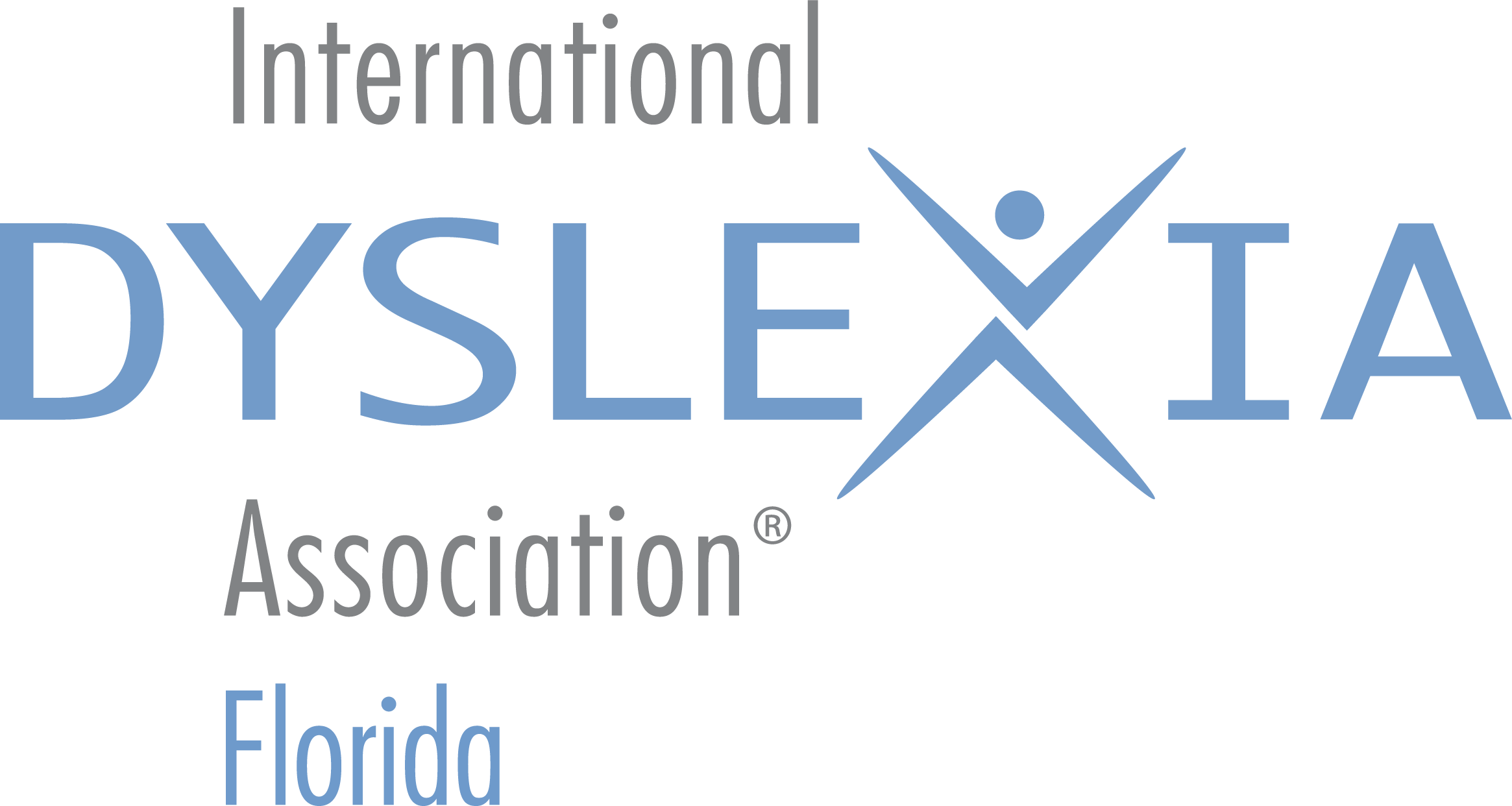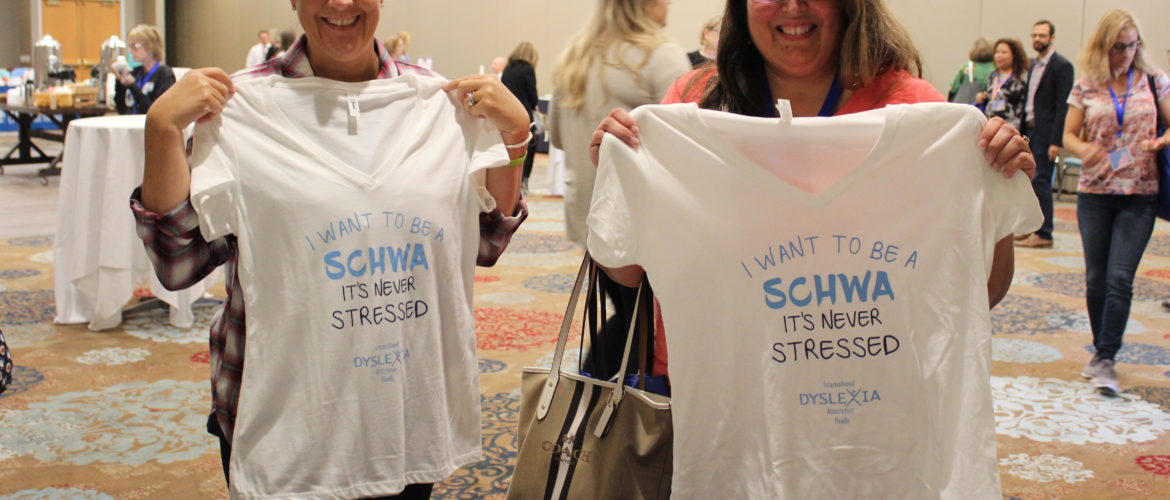Welcome, Dear Members and Friends of our Community,
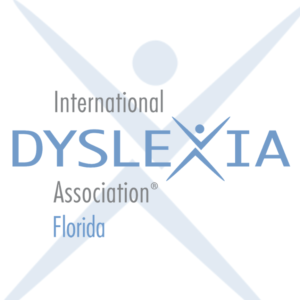
As we begin this new year, it is a privilege and a joy to serve as your President, Board of Directors and Advisory Council. We are grateful to share this journey with you—our dedicated community of students, parents, educators, advocates, researchers, and community partners.
Our vision of literacy for all drives our mission and guides our service. Through collaboration and partnership, we champion evidence-based structured literacy practices for every student with dyslexia and related learning dynamics, ensuring those who struggle receive the instruction they need to thrive.
This year, we are continuing our focus on both the Science of Reading and the Science of Math in our professional development offerings. Watch this space; follow our social feeds.
We invite you to join us in our shared commitment to serve. Connect with us and our fellow members, participate in our professional development; be part of meaningful change for all our communities.
On behalf of the IDA-FL Board of Directors and Advisory Council, thank you for your dedication to this mission and your service to those who need us most.
With gratitude and respectfulness,
Mandy
President, International Dyslexia Association – Florida Branch
The 2025 Revised Dyslexia Definition:
Webinar Recording and Follow Up Resources:
➡️Free Resources at the IDA-GA Website
Follow Up Resources as promised –
 Recording
Recording
The webinar recording is available on IDA Georgia’s YouTube channel:
Dyslexia Revised Definition Presentation
 The most comprehensive version of the slide deck appears on IDA’s website below the definition on the IDA website:
The most comprehensive version of the slide deck appears on IDA’s website below the definition on the IDA website:
 A central page with links to the slides and resources mentioned during the webinar is available on the IDA website:
A central page with links to the slides and resources mentioned during the webinar is available on the IDA website:
Dyslexia Revised Definition Resources
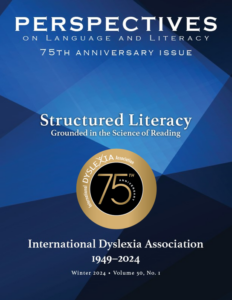
IDA Launches 75th Anniversary Edition of PerspectivesExciting news! The International Dyslexia Association proudly presents the highly anticipated 75th Anniversary Edition of Perspectives on Language and Literacy. This milestone publication offers invaluable insights into Structured Literacy, a crucial aspect of modern literacy instruction. Within its pages, readers will find contributions from leading experts in the field, providing comprehensive perspectives on the importance and practical application of Structured Literacy instruction. As literacy practices evolve, it’s essential for educators, parents, and stakeholders to stay informed and equipped with the latest research and methodologies. This anniversary edition serves as a beacon of knowledge, guiding readers through the intricacies of Structured Literacy and empowering them to foster literacy success for all learners. Whether you’re a seasoned educator or a concerned parent, this edition of Perspectives promises to deepen your understanding of literacy instruction and inspire positive change in educational practices. Join us in celebrating this milestone and explore the transformative power of Structured Literacy. For more information and to view our resource website today at www.dyslexialibrary.org. |
Watch Recordings of Previous Webinars on Our YouTube Channel
Dr. Brady’s Presentation Resources:
- A 2020 Perspective on Research Findings on Alphabetics (Phoneme Awareness and Phonics): Implications for Instruction
- Phoneme Awareness – IDA Fact Sheet 3-5-24
The Reading Comprehension Blueprint: The Why, The What & A Bit of the How! with Nancy Hennessey
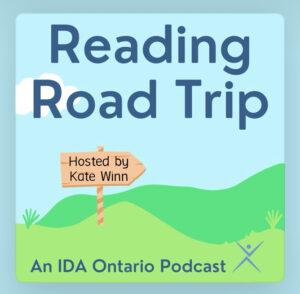 |
In each episode of Reading Road Trip from IDA Ontario, host and classroom teacher, Kate Winn, explores evidence-based literacy instruction with a fabulous guest. From researchers and authors to educators and advocates, they’re all sharing practical ideas that can be implemented now in your class, school or district!
Check out S2 E8: Dyslexia Facts, Myths and Strategies with Dr. Jack Fletcher! Kate chats with Dr. Jack Fletcher, unpacking all things dyslexia: Risk factors and prevention, dyslexia vs dysteachia, instructional tips, wait-to-fail, and dyslexia myths and misconceptions. |
What is Dyslexia?
Dyslexia is a language-based specific learning disability, that is neurobiological in origin. It affects the phonological component of language. Characteristics include difficulties with accurate and fluent word recognition, spelling, and decoding abilities. Students with dyslexia require Structured Literacy instruction, based on the Science of Reading. Click on What is Dyslexia above for a complete definition and more information.
The International Dyslexia Association (IDA) has launched the premier Dyslexia Digital Library at www.dyslexialibrary.org!
 The Dyslexia Digital Library houses an extensive collection of IDA’s most informative articles, fact sheets, infographics, and videos organized in a searchable, user-friendly site that also includes frequently asked questions and trending topics. Families can learn strategies to help them advocate for their child with dyslexia, reading teachers can find guidance on applying the principles of Structured Literacy in their classrooms, researchers can review the work of their peers—these are just a few examples of how to use the library.
The Dyslexia Digital Library houses an extensive collection of IDA’s most informative articles, fact sheets, infographics, and videos organized in a searchable, user-friendly site that also includes frequently asked questions and trending topics. Families can learn strategies to help them advocate for their child with dyslexia, reading teachers can find guidance on applying the principles of Structured Literacy in their classrooms, researchers can review the work of their peers—these are just a few examples of how to use the library.
This free resource, funded in part by a generous donation from the Georgia Branch of IDA, will continue to grow with new content and new features in the days ahead. “Globally, it is estimated that between 5-10% of the population experience dyslexia, which equates to around 700 million people worldwide, says CEO Sonja Banks. “As an organization, we are committed to helping everyone who struggles to read by provided the tools and resources individuals, educators, and researcher need until everyone can read.”
Dyslexia in the Classroom: What Every Teacher Needs to Know
Many elementary school teachers have limited resources related to dyslexia and other learning differences. Dyslexia in the Classroom: What Every Teacher Needs to Knowwas developed to open the door for these educators to a better understanding of dyslexia.
This handbook is intended to support all teachers in their passion to help every child reach his or her fullest potential. Use it to raise awareness, share best practices, and be a resource to your school’s administration and staff.
Inside you’ll learn more about find topics such as:
- Signs and symptoms of dyslexia
- Classroom strategies, tips, and tools
- Components of effective reading instruction
- Screening, evaluation, and diagnosis
We encourage you to share this handbook with as many people as possible. The more educators we can inform, the more children we can help!
Structured Literacy: Applying the Science of Reading in the Classroom
Suzanne Carreker, Ph.D., CALT-QI, Principal Educational Content Lead, Lexia Learning
Structured Literacy instruction is informed by the Science of Reading, which is the only proven way to ensure students can become proficient readers and confident learners across the curriculum.
Although this instruction is beneficial for all students, it is essential for students who are at risk for reading difficulties. By implementing the components, principles, and instructional practice that align to both the Science of Reading and Structured Literacy, administrators, teachers, and parents are assured that all students will receive the multifaceted literacy instruction they need for reading and academic success.
Click here to read the entire white paper by Suzanne Carreker.
Do You Think You Might Have Dyslexia?
Take a brief 10 question self-assessment.
Looking for Local Dyslexia Resources in Florida?
CERI Provider Directory- Florida
IDA Provider Directory- Florida

